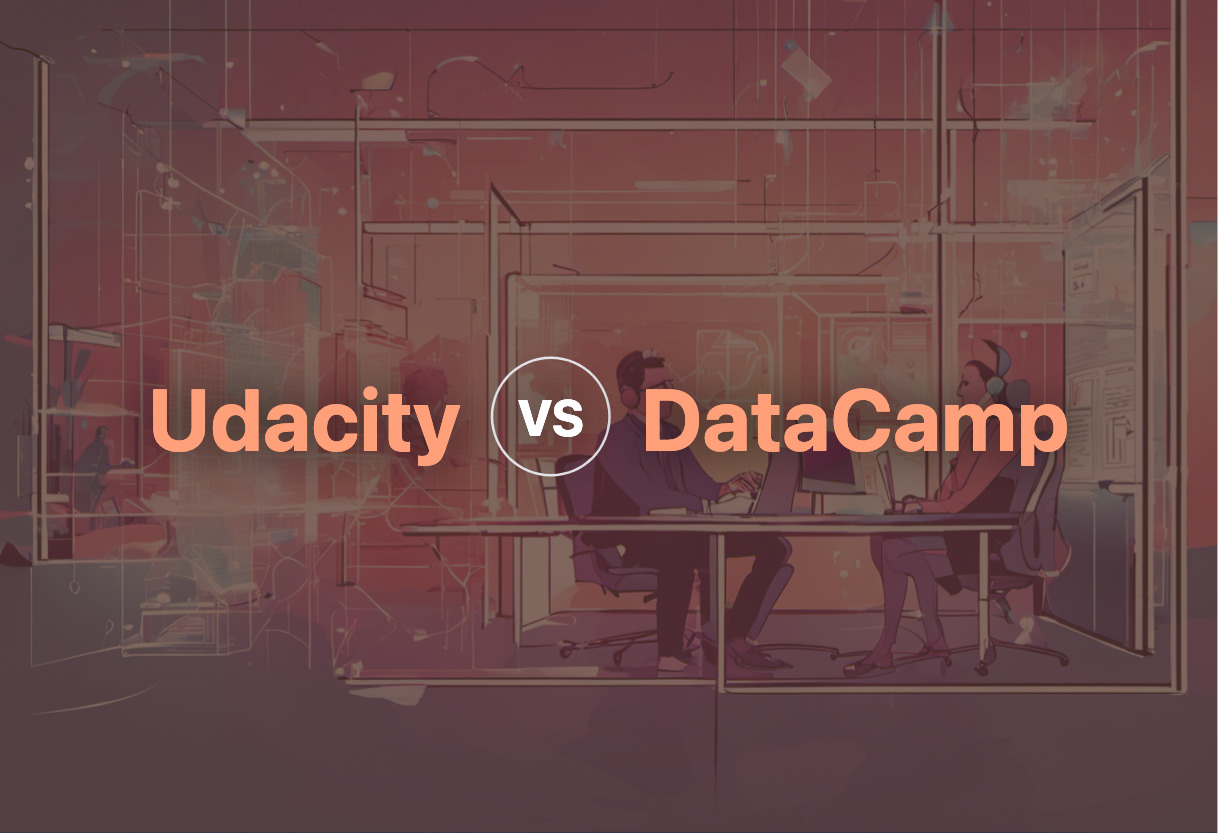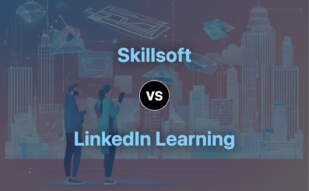For learners seeking tailored, project-based programs with personalized feedback from industry experts, Udacity is the better option. Whereas, if the goal is a deep immersion in data science/analysis with industry-recognized certification at cheaper rates, then DataCamp is the superior choice.

Key Differences Between Udacity and DataCamp
- Learning Approach: Udacity provides real-world project-based learning, while DataCamp offers a mix of course assignments and custom learning paths.
- Expertise: Udacity targets various tech specialties, while DataCamp focuses purely on data-based subjects.
- Pricing: Udacity’s Nanodegree programs start at $399 per month, whereas DataCamp’s standard personal plan is as low as $12.42 per month.
- Industry Recognition: Udacity’s completion certificates are widely recognized. DataCamp provides industry-recognized certificates specifically for Data Scientists and Data Analysts.
| Comparison | Udacity | DataCamp |
|---|---|---|
| Type | For-profit Educational Organization | Cloud-based Learning Management System |
| Learners/Users | 17 million learners | Over 7 million learners |
| Focus | On-demand tech education | Data science/analysis skills |
| Training Method | Project-based learning | Custom learning paths, course assignments |
| Courses Offered | Machine learning, data science, artificial learning, robotics, business, marketing, web and mobile programming | Mainly data-based topics |
| Partnered With | Google, AT&T, Unity | Google, Microsoft, eBay, PayPal |
| Plans Pricing | Nanodegree programs start at $399 per month | Standard- $12.42/month, Premium- $33.25/month |
| Completion Certificate | Yes, recognized by many organizations | Yes, industry-recognized |
| Course Categories | Unspecified | Learn new technology, Career track, Skill track |
| Audience | Students, Professionals | Independent learners, Teams, Businesses |
What Is Udacity and Who’s It For?
Udacity is a pioneering American online learning platform with a primary focus on vocational courses for professionals seeking to amplify their skill sets. Founded by Sebastian Thrun, David Stavens, and Mike Sokolsky, and partnered with leading tech companies, Udacity caters to more than 17 million learners worldwide. Its innovative, project-based tech courses range from machine learning, data science, artificial intelligence to mobile programming and more.
Presenting robust e-learning options, Udacity offers Nanodegree programs that are hailed for their industry relevance and optimal knowledge delivery. It is trusted by distinguished industries such as Aerospace, Automotive, Financial Services, and many more. With a full suite of support elements including career coaching, resume reviewing, an intuitive interface, and thorough assessments, Udacity is a comprehensive solution for those ready to invest in their career transformations.

Pros of Udacity
- Offers extensive range of tech-focused courses
- Project-based learning is modeled after real-world scenarios
- Provides personalized feedback and industry expert mentorship
- Certification, career coaching and CV, LinkedIn and GitHub reviews are provided
- Has a user-friendly interface and quick registration process
Cons of Udacity
- Courses and Nanodegree programs require substantial time commitment
- Higher pricing could be a barrier for some learners
What Is DataCamp and Who’s It For?
DataCamp is a distinguished cloud-based Learning Management System (LMS) dedicated to educating data enthusiasts. Whether you’re a novice stepping into the world of data science, a seasoned analyst honing your skills, or a corporation investing in team learning, DataCamp’s personalized and comprehensive learning paths are tailored for you.
This platform offers an extensive course library and role-based permissions for learners, with a variety of business and personal plans to suit different needs. Most appealingly, courses are taught by expert industry instructors, with engagement analysis and performance reporting at the heart of their system. Whether you’re a part of a small team or a part of major players like Google and Microsoft, DataCamp’s focused data-centric courses are a great platform to enrich your data processing prowess.

Pros of DataCamp
- Offers custom learning paths and course assignments
- Role-based permissions and insightful engagement analysis
- Vast repository of courses taught by expert instructors
- Approved by the industry, ideal for individuals, teams, and businesses alike
Cons of DataCamp
- Enterprise pricing details are not readily available
Placing Your Bet: Udacity vs DataCamp
Leveraging data drawn from the performance metrics of these two tech giants – Udacity and DataCamp – here’s our unflinching verdict for different user classes.
Professional Developers & Engineers
Focused onadvanced skills acquisition, engineers and developers are best served by Udacity. Its project-based learning model aligns with professionals seeking to solve complex, real-world scenarios. Tailored feedback and mentorship from industry aces are invaluable. Udacity’s high-ranking LMS that doubles as a corporate learning management system is a game-changer. Time investment is significant, but the payoff is worthwhile.

Aspiring Data Scientists & Analysts
Sharpining your teeth for a career in the data? DataCamp, with its finely-tuned data-focused course library, is the potent antidote your crave. It offers tailored learning paths and course assignments for deep subject mastery. DataCamp’s skill matrix is an ace for monitoring progress and evaluating training impact. For the price, you won’t find a better gateway to the world of data science and analysis.

Businesses & Digital Enterprises
For businesses threading the digital landscape, DataCamp’s custom enterprise plan takes the crown. It’s precise, designed to meet unique business needs and ensures smooth team integration. DataCamp pulls its weight with its stellar engagement analysis, reporting and data export features. However, companies seeking to build expertise in a broader range of advanced tech fields may find Udacity provides a richer skill menu.

Deciphering Udacity vs DataCamp: Udacity shines for professionals seeking advanced, practical tech skills and real-world problem-solving. DataCamp is the champion for aspiring data scientists or analysts and offers enticing custom plans for businesses. Choose wisely.
Grant Sullivan
Content writer @ Aircada and self proclaimed board game strategist by day, AI developer by night.





